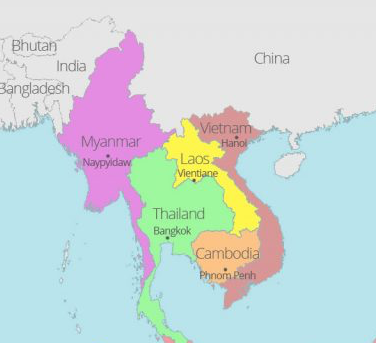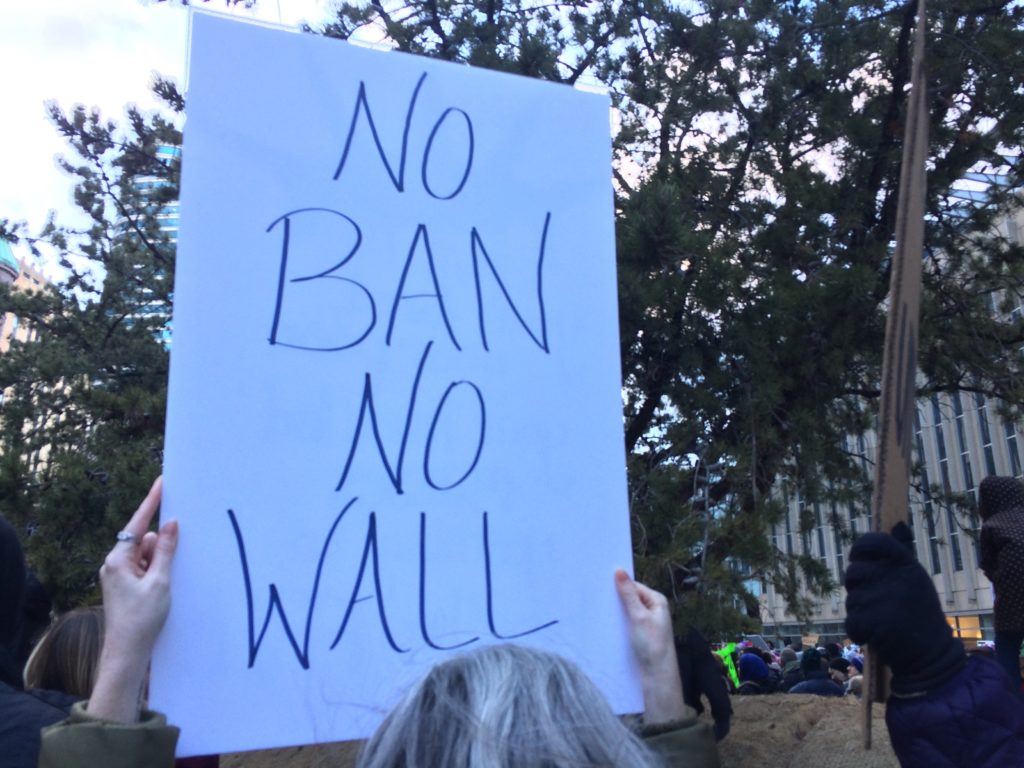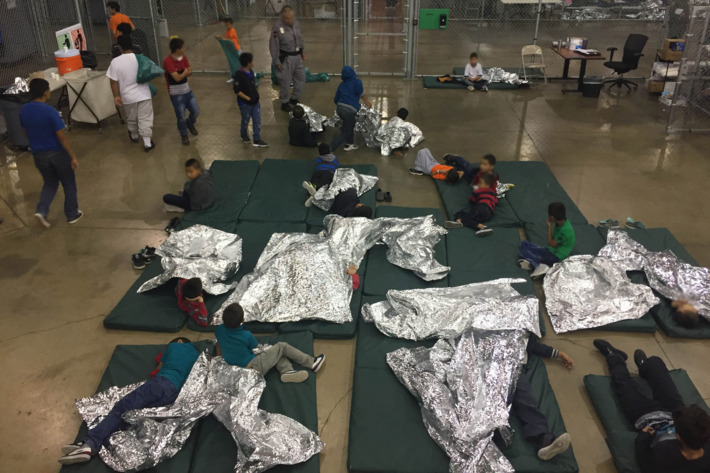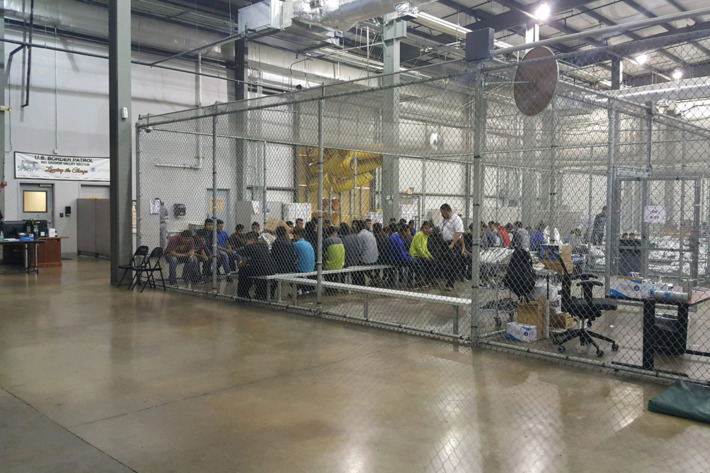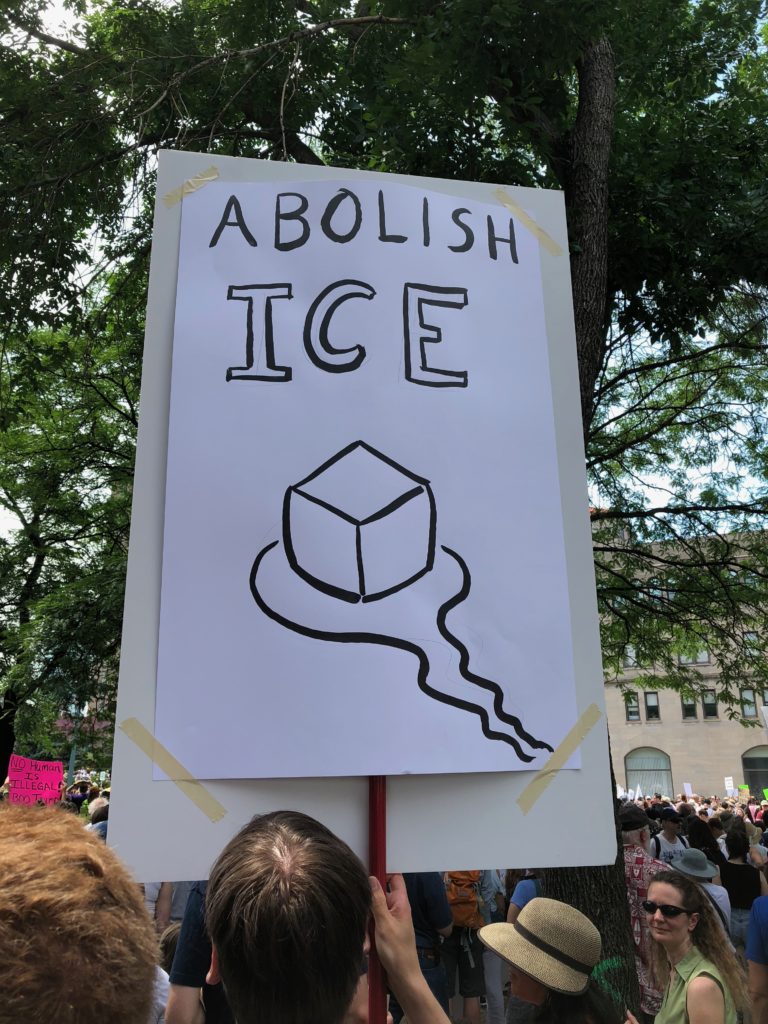
In a week, #AbolishICE has gone viral on social media and protest signs. The movement is not new: many progressives and immigrant activists consider ICE and CBP rogue agencies and have been calling for much greater accountability or their outright abolition. Two events made #AbolishICE go viral at the end of June: Trump’s family separation policies and the upset victory of Alexandria Ocasio-Cortez, who made it part of her winning platform.
Vox explains:
“As the people on the ground carrying out Trump’s deportation agenda, ICE agents have become, to many, the face of the administration’s worst impulses. They’re America’s “Gestapo.” They’re a “rogue agency.” Rumors and reports of ICE raids have rippled through communities and social media with regularity; arrests of parents, recorded on their children’s cellphone cameras, have provoked nationwide outrage.”
The #AbolishICE campaign originated with activists, not with politicians, but politicians have begun to swing around to support the movement. Representative Mark Pocan (D-WI) jumped out in front of the Congressional crowd, introducing a bill to abolish ICE and set up a commission to figure out what to do to replace it. Other early supporters of the legislation include Reps. Pramila Jayapal (D-WA), Earl Blumenauer (D-OR), and Jim McGovern (D-MA).
Many Democrats now endorse the movement. Others—including Minnesota Senator Amy Klobuchar and Illinois Senator Tammy Duckworth—do not.
Trump says “I love that issue,” calling it an extreme open borders position that will get Democrats beaten in the mid-terms.
It’s not an open borders position. That’s just the usual Trump lie about anything Democrats propose on immigration. But what is #AbolishICE?
Background: ICE is Immigration and Customs Enforcement and CBP is Customs and Border Protection, sometimes referred to as Border Patrol. Both are part of the Department of Homeland Security (DHS). CBP operates within 100 miles of U.S. borders.
ICE includes both interior Enforcement and Removal Operations (ERO) and Homeland Security Investigations (HSI). ERO is the face of ICE seen most often, as in recent raids on workplaces in Ohio and other states. HSI, charged with transnational criminal investigations, is increasingly uncomfortable with the immigration enforcement operations of ICE.
USCIS is U.S. Citizenship and Immigration Service, which processes requests for immigration benefits, and is also part of DHS. Then there’s the immigration court system—the Executive Office for Immigration Review (EOIR) and the Board of Immigration Appeals (BIA), both in the Department of Justice and under the direct command of the Attorney General.
Immigration enforcement dramatically expanded after 9/11 and now accounts for more enforcement spending than all other federal law enforcement agencies combined, including the FBI, DEA, and the Secret Service. Beginning with 9/11 up to the current Muslim Ban, the direct linking of civil immigration enforcement with national security is a lose-lose for both due process protections and fiscal restraint.
Today: ICE and CBP are both enforcement agencies. Some immigration activists call them, together, the Deportation Force. Since their establishment in 2003, neither has ever been accused of being friendly to immigrants. There have been numerous internal and external investigations of both CBP and ICE that demonstrate the need for reform and accountability of conduct such as use of force and non-compliance with basic detention standards.
Under the current administration, early executive orders have not only thrown out concepts of prosecutorial discretion but have directed both agencies to dramatically increase arrests in an early version of “zero tolerance.” Trump’s systemic use of dehumanizing rhetoric referring to immigrants as rapists, murderers and animals clearly seeks to create a good vs. evil narrative.
Even within DHS, ICE’s heavy-handed enforcement has critics. In a recent letter to DHS Secretary Kirstjen Nielson, 19 HSI special agents in charge from across the country asked for formal separation of HSI from ICE’s Enforcement and Removal Operations, in part because their work is being “unnecessarily impacted by the political nature of civil immigration enforcement.”
The banner of #AbolishICE includes a spectrum of ideas. #AbolishICE does not mean the same thing to everyone who carries a sign. But to be clear, all of them respond to the un-hecked, arbitrary, unrestrained, and inhumane activities of ICE and CBP that have increased under Trump.
For some, including Democrats introducing legislation that will go nowhere in this Congress, #AbolishICE means setting up a study commission and figuring out how to redistribute its enforcement functions in a kinder, gentler deportation force with stronger oversight and more restricted priorities.
Ocasio-Cortez told Documented NY that she still sees some role for immigration enforcement:
“In a similar way where we have law enforcement enforce legitimate crimes of violence, crimes of harm, mass, large fraud, I think that there is a role for enforcement there, but I do not think that it in any way is equivocal to what we are seeing with ICE right now.”
Others, including Mijente, a Latinx and Chicanx racial justice organization, would go much further. Mijente’s Free Our Future: An Immigration Platform for Beyond the Trump Era says:
“We literally mean: disband the agency. Trump’s deportation squad should cease to exist. Immigration enforcement as we know it should end. What would this mean in practice? A moratorium on deportations. The end of all forms of immigration detention. The reimagining of the Border Patrol as a humanitarian force that rescues migrants, rather than destroying their water supplies to hasten their deaths. Border Patrol could be staffed by emergency services experts and healthcare workers, not police.
“We need to establish a truth and reconciliation commission to examine the abuses perpetrated by Homeland Security agencies (ICE, CBP, USCIS, TSA). We need reparations distributed to the millions who have been terrorized by ICE. Maybe you’re not used to seeing such bold demands emerge from our side. The Right, on the other hand, has demanded the dissolution of nearly every cabinet level agency at some point. Let’s be bold too. Let’s create a future free of ICE, free of the possibility that any future President will have at their disposal a police force whose sole purpose is to terrorize immigrant communities.”
Some Democrats worry that the #AbolishICE sounds too extreme. Greg Sargent, writing in the Washington Post’s Plum Line blog, warns against timidity:
“[T]here’s no real percentage [for Democrats] in making a big show of policing their left flank over it. Trump wants Democrats to publicly wring their hands in terror of his attacks. This is a sucker’s game, one that is designed to bait Democrats into projecting timidity, equivocation, lack of conviction and weakness. Instead, Democrats should continually turn this back on him, by going on offense against his horrible policies and the immense human toll they are inflicting.”
This is an evolving national conversation that is relevant today because of the escalating cruelty by the Trump administration in ripping children from parents, both on the border and in the interior of the United States. Those most directly impacted and threatened lead this call for accountability in U.S. immigration policies. The history of lack of any true accountability by either ICE or CBP calls out for long overdue Congressional action.
For more information on #AbolishICE, see:
 Ascension, 1723 Bryant Avenue North, Minneapolis from 8 a.m.-4 p.m. on Saturday, August 18 and from 8 a.m.- noon on Sunday, August 19.
Ascension, 1723 Bryant Avenue North, Minneapolis from 8 a.m.-4 p.m. on Saturday, August 18 and from 8 a.m.- noon on Sunday, August 19.




